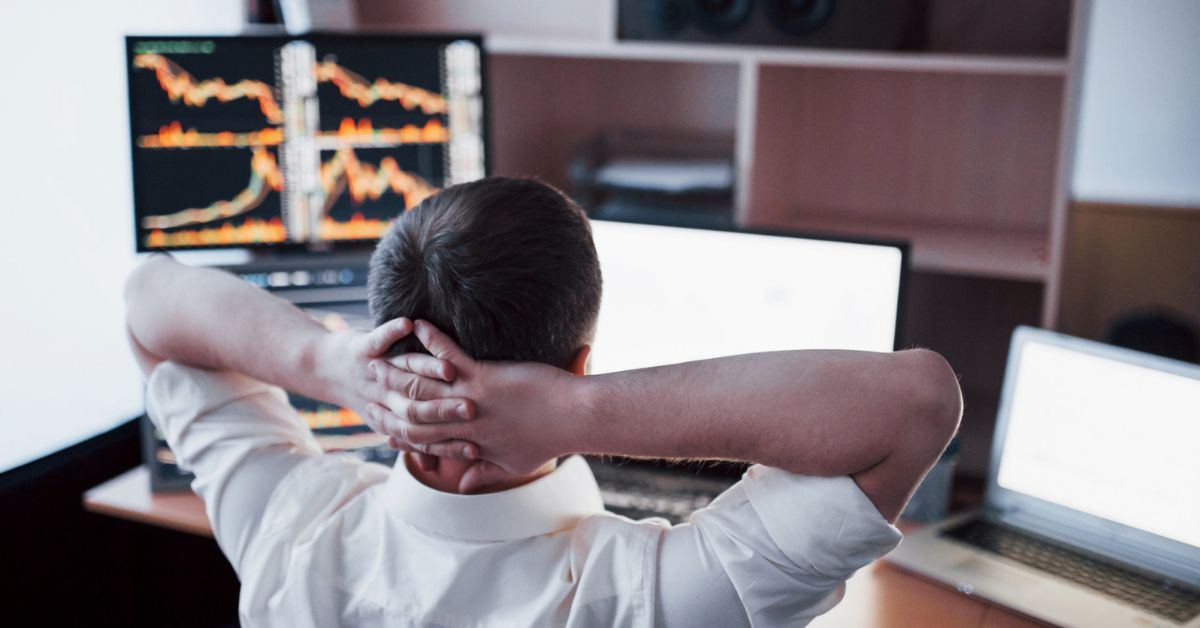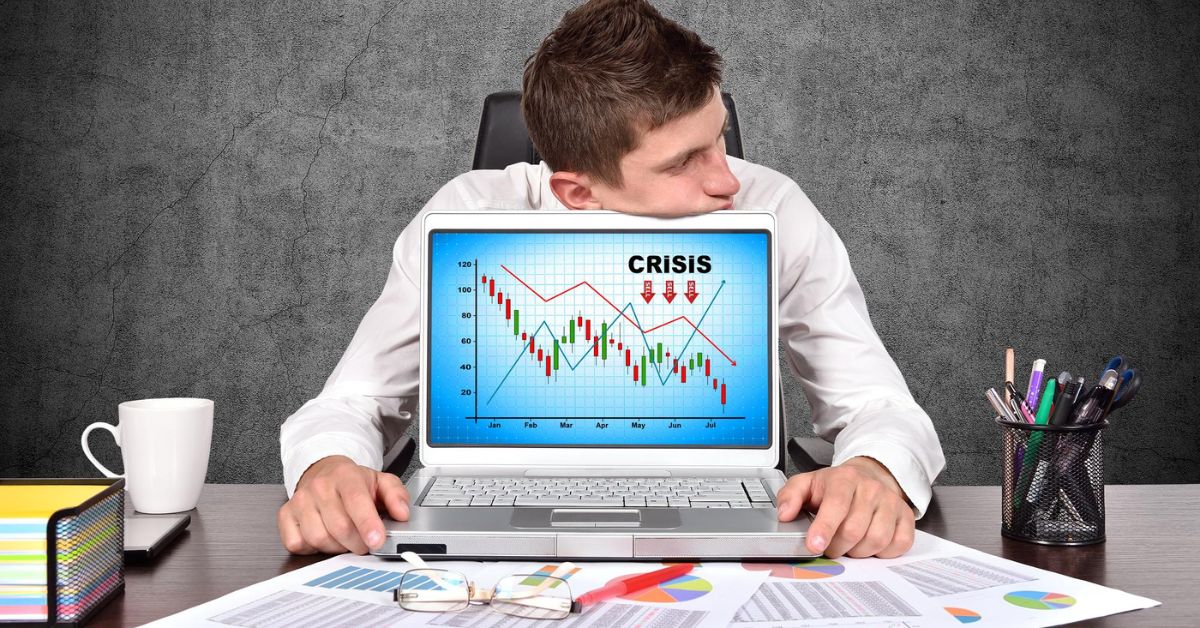Trading in financial markets has become more popular, attracting both seasoned investors and newbies. Although trading can be profitable, it also has many side effects that can have a big impact. Thus, any trader considering entering the market needs to understand the side effects of trading.
In this article, we will explore the various psychological, physical, and social side effects of trading. Investing in these topics will help traders navigate the challenges they may face as they trade.
Platforms like Prime XBT have reliable resources and tools that traders rely on. In addition to offering access to various markets, this crypto trading platform provides insights and analytics. It’ll help you recognize the side effects of trading and make informed decisions. So, join PrimeXBT today! Use promo code PRIMEOTT to receive a +7% bonus on your deposit.
Psychological Side Effects of Trading

Trading can significantly affect mental health and emotional well-being. Many traders experience heightened stress and anxiety levels due to market volatility. The constant pressure to make quick decisions can become overwhelming. As a result, emotional responses often fluctuate throughout the trading day.
Emotional Impact
The thrill of potential profits can create a feeling of euphoria. This excitement can lead to risky trading behaviors and poor decision-making.
Conversely, significant losses can plunge traders into despair and self-doubt. Such emotional highs and lows can disrupt a trader’s focus and strategy. Over time, these extreme emotions may foster a toxic trading environment.
Stress and Anxiety
The fast-paced nature of trading often leads to high levels of stress and anxiety. Traders constantly monitor market fluctuations, which can be mentally exhausting. This constant vigilance can lead to chronic stress, affecting overall health.
Managing stress through relaxation techniques is vital for mental health. Taking breaks and practicing mindfulness can help alleviate anxiety.
Overconfidence and Impulsivity
Successful trades can lead to overconfidence, causing traders to take unnecessary risks. This overconfidence can result in impulsive trading decisions, which often lead to significant financial losses and regrets. Traders should practice discipline and adhere to their trading plans. Staying grounded and avoiding emotional decisions is key to successful trading.
Depression and Burnout
Continuous trading without breaks can lead to burnout and depression. The pressure to succeed and constant vigilance can be overwhelming. Burnout affects physical, emotional, and mental health. Taking regular breaks and setting realistic goals can prevent burnout. Seeking professional help when needed is crucial for mental health.
Decision-Making Fatigue
Constantly making decisions can lead to mental exhaustion and burnout. The fatigue from evaluating market data and trends can be overwhelming. This exhaustion may cause analysis paralysis, where traders struggle to make choices.
Overthinking trading decisions often results in missed opportunities. To combat this, traders must develop effective strategies for maintaining mental clarity and focus.
Addiction and Compulsive Trading
For some individuals, trading can evolve into an addictive behavior. Signs of trading addiction include neglecting personal relationships, work, and responsibilities. Compulsive trading often leads to severe financial and emotional repercussions.
The thrill of trading can become a substitute for emotional fulfillment. Recognizing these signs early can help traders seek support and maintain balance.
Physical Side Effects of Trading

The physical side effects of trading often arise from extended hours spent in front of screens. Many traders sit for long periods, which can adversely impact their health.
A sedentary lifestyle has been linked to numerous health risks, including obesity, heart disease, and metabolic disorders. Therefore, incorporating regular movement and breaks is essential for maintaining overall health and well-being.
Sedentary Lifestyle
Prolonged sitting can lead to chronic pain, particularly in the back, neck, and shoulders. Poor posture while trading exacerbates these physical issues over time. To mitigate these effects, traders should adopt ergonomic practices.
Using supportive chairs designed for long hours can help reduce discomfort. Additionally, adjusting desk height to promote good posture is crucial for physical health.
Sleep Disruption
Many traders monitor markets late into the night, disrupting their natural sleep patterns. Inadequate sleep can lead to chronic fatigue, irritability, and reduced concentration levels. This lack of rest negatively impacts decision-making abilities and overall trading performance.
Traders should establish clear trading hours to maintain a healthy sleep schedule. Creating a relaxing bedtime routine can significantly improve sleep quality and duration.
Eye Strain and Health Issues
Prolonged screen time can cause significant eye strain and discomfort. Common symptoms include dryness, blurred vision, headaches, and fatigue. To protect their eyes, traders should follow the 20-20-20 rule.
It involves taking a 20-second break every 20 minutes to look at something 20 feet away. Adjusting screen brightness and using blue light filters can also help reduce eye strain.
Financial Side Effects of Trading

Trading in financial markets can lead to several significant financial side effects. While the potential for profits attracts many traders, the risks involved can be high. Substantial economic losses can occur unexpectedly, impacting both finances and emotional well-being. Financial health and responsible trading practices depend on understanding these implications.
Risk of Significant Losses
One of the primary financial side effects is the risk of substantial losses. Many traders enter the market without fully understanding the risks involved, which can lead to reckless trading decisions. Emotional turmoil often follows unexpected financial setbacks, which can be devastating.
The stress of losing money affects mental clarity and decision-making abilities. Traders may react impulsively to losses, compounding their financial issues. Developing effective risk management strategies is crucial for mitigating this risk and preserving capital.
Impact on Financial Planning
Frequent trading can significantly disrupt long-term financial goals and plans. Many traders become overly focused on short-term gains, neglecting their broader financial futures. This short-sightedness can hinder their ability to save and invest wisely. As a result, essential financial priorities may be overlooked, leading to a lack of economic security.
Balancing trading activities with long-term financial planning is essential for sustainability and success. Traders should regularly assess their financial goals and strategies to maintain a healthy perspective.
Importance of Risk Management Strategies
Effective risk management is vital to successfully navigating the financial side effects of trading. Tools like a stop-loss calculator can significantly enhance trading decisions. This calculator helps traders determine optimal exit points to minimize losses effectively.
Setting stop-loss orders can help limit potential losses in volatile markets. Additionally, diversifying investments across various asset classes can reduce exposure to high-risk assets. This strategy helps protect capital during downturns and market fluctuations.
For traders looking to improve their risk management skills, the On Tilt Trading Store offers a range of valuable tools. These tools, such as stop-loss calculators and risk assessment tools, can assist traders in making informed decisions. Check out our store today and use promo code OTT10 to receive 10% off your order.
Social Side Effects of Trading

Trading can lead to various social side effects that significantly impact relationships and personal life. Many traders find themselves isolated due to the long hours spent monitoring the markets.
This isolation can strain relationships with family and friends, creating emotional distance. The intense focus on trading may lead to neglecting important social activities and gatherings, which can worsen feelings of loneliness.
Isolation from Family and Friends
Traders often dedicate long hours to analyzing charts and making trades. This dedication can create a sense of loneliness and disconnection from loved ones. Family members and friends may feel neglected due to the trader’s constant focus on their screens.
Over time, this isolation can lead to misunderstandings and resentment in relationships. To maintain healthy connections, traders should prioritize quality time with family and friends. Setting boundaries for trading hours can help foster better relationships.
Neglect of Social Activities
Many traders may forgo social activities to pursue trading opportunities. They might miss out on family gatherings, celebrations, or outings with friends. This neglect can lead to feelings of regret and sadness over time. Constantly prioritizing trading over social interactions can negatively affect mental health.
A balanced approach to trading and social life is crucial for overall well-being. Scheduling regular time for friends and family helps maintain a healthy lifestyle and strengthens relationships.
Strained Relationships
The stress of trading can lead to heightened emotional reactions, impacting relationships negatively. Partners may become frustrated with a trader’s constant preoccupation with market fluctuations. Poor communication can exacerbate misunderstandings and conflicts between partners.
Traders need to communicate openly about their trading activities and emotions. Building a support system, including friends and family, can help mitigate these social side effects. Engaging in joint activities can strengthen bonds and provide emotional relief.
Strategies to Mitigate Side Effects

Implementing effective strategies can help mitigate the side effects of trading. These strategies promote a healthier and more balanced trading experience.
Setting Limits and Boundaries
Set clear limits on trading hours to maintain a work-life balance. Designate specific times for trading activities to prevent trading from consuming your entire day. Establish boundaries to protect personal time and relationships. Consistent routines help create a healthier trading environment. Scheduling time for hobbies can also provide relaxation.
Incorporating Breaks and Physical Activity
Regular breaks during trading sessions are crucial. Short breaks can help reduce stress and mental fatigue. Incorporate physical activity into your daily routine. Exercise improves physical health and boosts mental well-being. Simple activities like stretching or walking can make a big difference. Taking breaks also enhances focus and productivity.
Utilizing Support Systems
Build a support system of friends, family, and fellow traders. Open communication with loved ones helps manage stress. Share your trading experiences and challenges. Join trading communities for shared experiences and support. A strong support system is vital for emotional health. Engaging with others provides a sense of belonging and understanding.
Practicing Mindfulness and Relaxation Techniques
Mindfulness practices, such as meditation and deep breathing, can help manage stress and anxiety. Regular relaxation practices promote mental clarity, and mindfulness helps maintain focus and emotional stability. Integrate these practices into your daily routine. Consistent practice enhances resilience and reduces emotional volatility.
Seeking Professional Help When Needed
Don’t hesitate to seek professional help for mental health issues. Therapists and counselors can provide valuable support. Addressing emotional and psychological challenges is important. Professional guidance helps develop coping strategies. Prioritize mental health to ensure overall well-being. Early intervention can prevent severe mental health issues.
FAQs
What are the negatives of trading?
Trading has several negatives that can impact your life. Financial losses are common and can be substantial. Emotional stress from market fluctuations is significant. It often leads to anxiety and depression. Trading can also strain relationships due to the time and focus required. Health issues can arise from a sedentary lifestyle. Constant screen time affects physical health negatively.
Overconfidence and impulsive decisions can cause further losses. Trading may lead to isolation from social activities. It requires continuous learning and adaptation. Risk management is essential to mitigate these negatives. Always be aware of these potential downsides.
Does trading affect your health?
Yes, trading can affect your health. Prolonged screen time can cause eye strain. Sitting for long periods leads to physical issues. It increases the risk of obesity and cardiovascular problems. Stress from trading impacts mental health. Anxiety and depression are common among traders.
Lack of sleep due to market monitoring affects overall health. It can lead to the development of unhealthy eating habits. Physical activity is often neglected. Emotional roller coasters impact mental stability. Taking breaks and exercising helps mitigate health risks. Prioritizing a balanced lifestyle is crucial for traders.
Final Words
Trading offers opportunities but also comes with significant side effects. Emotional, psychological, social, and physical impacts are common among traders. Stress, anxiety, isolation, and health issues can arise from intense market focus. Effective strategies are essential to mitigate these side effects. Setting limits, incorporating breaks, and seeking support can help maintain balance.
Do you lose money because of panic selling, FOMO, overtrading, and bag holding? We recommend the Vestinda trading app. Vestinda helps eliminate emotional decision-making with automated crypto trading strategies. Prioritize your well-being by managing the negative impacts of trading. A balanced approach ensures long-term success and health. Stay informed, stay disciplined, and utilize tools like Vestinda for better trading outcomes.



